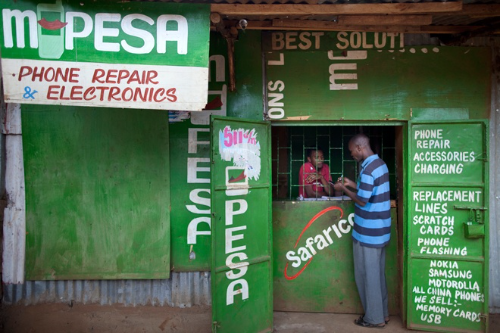When Banks Start Acting Like Startups: The Great Fintech Reversal

For a long time, the narrative was simple; fintechs were the bold ones and banks were the old ones. Across Africa, it played out like a generational shift. The startups were fast, digital-first and focused on user experience. The banks were slow, rigid and buried under many forms and procedures. But that is quietly changing. From Lagos to Nairobi to Johannesburg, legacy banks are beginning to look, sound and act like fintech startups.
It’s an odd kind of reversal, as the challengers that once redefined banking are now watching the old banks borrow their systems, the agile methods, sleek design and youth-centric branding. Suddenly, traditional banks are rebranding as digital banks, speaking the same language they once dismissed. What changed? And can a 50-year-old institution really learn to move like a startup?
The Shift Begins
In the African continent today, the pressure on traditional finance has reached an all time high. Fintech adoption in the continent is among the fastest in the world, and according to McKinsey & Co. 2024, Africa's fintech market is expected to grow fivefold by 2028, reaching $47B in revenue.
In Nigeria, mobile-only banks like Kuda, Opay and Moniepoint have redefined expectations, providing 24/7 access, zero queueing and instant transfers. That kind of clarity has pushed the older banks to rethink how they speak and what they offer.
Wema Bank’sALAT, launched as Africa’s first fully digital bank, became the template for what a hybrid institution could look like; agile but backed by legacy stability. Elsewhere, GTBank spun off HabariPay, UBA rolled out Leo, its AI chatbot, and Access Bank actively established self-service electronic branches to attract younger customers. In Kenya, Equity Bank and KCB are pushing aggressively into mobile ecosystems, partnering with telecommunications to reach unbanked users who were once squarely in fintech territory.
What It Means to Act Like a Startup
When African banks say they want to act like startups, they’re not just talking about apps, they’re talking about adopting a mindset. A decade ago, it took days to open an account. Now, with tools inspired by fintech processes, customers can open accounts online in minutes, with no branch visit or printed forms. Banks are now investing in mobile-first design, learning the same UX principles that once separated them from fintechs.
They’re also adopting the partnership culture of startups. Instead of competing head-on, banks now partner with fintechs. Access Bank’s partnership with Remita and Sterling’s collaboration with Paystack show how these institutions are embedding fintech products within their systems, and vice versa.

Internally, the shift is cultural. Banks are restructuring departments into smaller, agile squads, an idea borrowed from tech. These teams experiment faster, pilot new features and learn from customer data instead of waiting for year-long reviews. In South Africa, Standard Bank’s digital labs now operate almost like fintech startups within the larger organisation, creating new products for retail and SME customers in weeks, not months.
There’s also the move toward Banking as a Service (BaaS), offering core financial infrastructure to startups and businesses. NMB Bank Tanzania, for instance, provides APIs (Application Programming Interfaces) that allow small fintechs to plug directly into its payments system, a clear shift from the old banking model.
In back-end systems, transformation runs deep. From cloud migration to AI-driven fraud detection, banks are rebuilding their technical foundation.
Why the Pivot Happened
Three pressures explain this reversal. First, the fintech competition. Africa’s fintech startups have raised billions in recent years, capturing massive youth segments. For banks, this is no longer a small corner of innovation, it is their main competition.
Second, customer expectation. Gen Z consumers are redefining what trust looks like in finance. They don’t want men in suits or pristine halls, they want apps that work and brands that speak their language. Banks that fail to meet that standard risk irrelevance.
Third, technology and partnerships. Open-banking regulations, cloud infrastructure and digital identity systems have made it possible for banks to be more agile without losing compliance. As Central Banks across Africa push for cashless economies, the digital rails are already being built. It’s now up to banks to use them. In essence, the pivot is more like a survival strategy.
The Reality on the Ground
Nigeria remains the continent’s clearest example of this transformation. In Lagos alone, nearly every major bank now runs a digital product separate from its parent structure. GTWorld, ALAT, AccessMore, and UBA Mobile all compete directly with fintech apps on user experience and interface. Even Zenith Bank, once infamous for its corporate rigidity, now invests in UI design, youth campaigns and quick onboarding tools.
The results are visible. In Nigeria, Wema’s ALAT recorded a 131% increase in digital customers in 2022. These are not just statistics, they represent a behavioural shift in how Africans bank, save and trust. But what then happens to fintechs when the incumbents start speaking their language?
It’s both a threat and an opportunity. For many startups, the danger is competition from giants that now understand design and agility. Yet partnerships are growing. Rather than compete, fintechs like Paystack, Flutterwave, Mono, and Carbon now plug into bank systems. Still, the line between fintech and banks is fading. A fintech with a microfinance licence might look like a digital bank and a bank running an agile lab might look like a fintech. For consumers though, it doesn’t matter, what matters is ease, speed and trust.

Challenges and Contradictions
For all the buzz, transforming into a startup is not as easy as releasing an app. Many digital arms of banks still remain constrained by legacy systems and decision chains. In truth, some digital banks are still running on the same old infrastructure, only with a new outlook.
Cultural resistance is also another hurdle. Within many African banks, innovation labs exist, but are often isolated, celebrated for PR but ignored in core operations. Tech talent retention is also difficult, as developers drawn to startup freedom find corporate culture suffocating. Then there’s also the regulation. Banks cannot move as fast as fintechs without regulatory scrutiny. A single compliance delay can slow down product cycles that fintechs would deploy in weeks.
The irony of it all is that as banks learn agility, fintechs are learning compliance. Both are converging, but the rhythm still remains off.
Conclusion
The reversal of both platforms remains unmistakable. The old banks are changing their outlook, vocabulary and vision, not just to survive, but to stay ahead.
In the end, this transformation could redefine what “bank” means in Africa. When the institution that once asked for passport photos now asks for feedback on its app interface, it’s more than innovation, it is an evolution. One where the disruptors become the teachers, and the establishment finally learns how to move fast.
Recommended Articles
Abuja Unplugged: Diesel Shortage Triggers Widespread Telecom Outage!
Segun Adeyemo has been instrumental in scaling major Nigerian digital banks like GoMoney and Kuda, demonstrating his pro...
M-Pesa's Game-Changer: Safaricom Unleashes Stock Trading for Millions!

Safaricom has launched Ziidi Trader, a new stock-trading feature on its M-Pesa mobile platform, enabling 35 million user...
Nigerian FinTech Star Trade Lenda Nears $1M Prize in Global Innovation Hunt!

Nigerian fintech company Trade Lenda has reached the semifinal round of the prestigious Milken-Motsepe Prize in Fintech,...
FinTech Innovators, Attention! Global Hackcelerator 2018 Applications Now Open!

KPMG Digital Village, in partnership with MAS, has opened applications for its 2nd Global FinTech Hackcelerator 2018. Th...
Fintech Giant Unlimit Secures Third African Payment License, Expanding Across Continent

Fintech company Unlimit has secured a license from the Bank of Tanzania, marking its official entry into the Tanzanian m...
Tech Giant OPay Expands Nigerian Footprint, Unveils New Ibadan Hub
OPay Digital Services Limited has launched its new, fully upgraded office in Ibadan, Nigeria, reinforcing its commitment...
You may also like...
Super Eagles Fury! Coach Eric Chelle Slammed Over Shocking $130K Salary Demand!
)
Super Eagles head coach Eric Chelle's demands for a $130,000 monthly salary and extensive benefits have ignited a major ...
Premier League Immortal! James Milner Shatters Appearance Record, Klopp Hails Legend!

Football icon James Milner has surpassed Gareth Barry's Premier League appearance record, making his 654th outing at age...
Starfleet Shockwave: Fans Missed Key Detail in 'Deep Space Nine' Icon's 'Starfleet Academy' Return!

Starfleet Academy's latest episode features the long-awaited return of Jake Sisko, honoring his legendary father, Captai...
Rhaenyra's Destiny: 'House of the Dragon' Hints at Shocking Game of Thrones Finale Twist!

The 'House of the Dragon' Season 3 teaser hints at a dark path for Rhaenyra, suggesting she may descend into madness. He...
Amidah Lateef Unveils Shocking Truth About Nigerian University Hostel Crisis!

Many university students are forced to live off-campus due to limited hostel spaces, facing daily commutes, financial bu...
African Development Soars: Eswatini Hails Ethiopia's Ambitious Mega Projects

The Kingdom of Eswatini has lauded Ethiopia's significant strides in large-scale development projects, particularly high...
West African Tensions Mount: Ghana Drags Togo to Arbitration Over Maritime Borders

Ghana has initiated international arbitration under UNCLOS to settle its long-standing maritime boundary dispute with To...
Indian AI Arena Ignites: Sarvam Unleashes Indus AI Chat App in Fierce Market Battle

Sarvam, an Indian AI startup, has launched its Indus chat app, powered by its 105-billion-parameter large language model...
